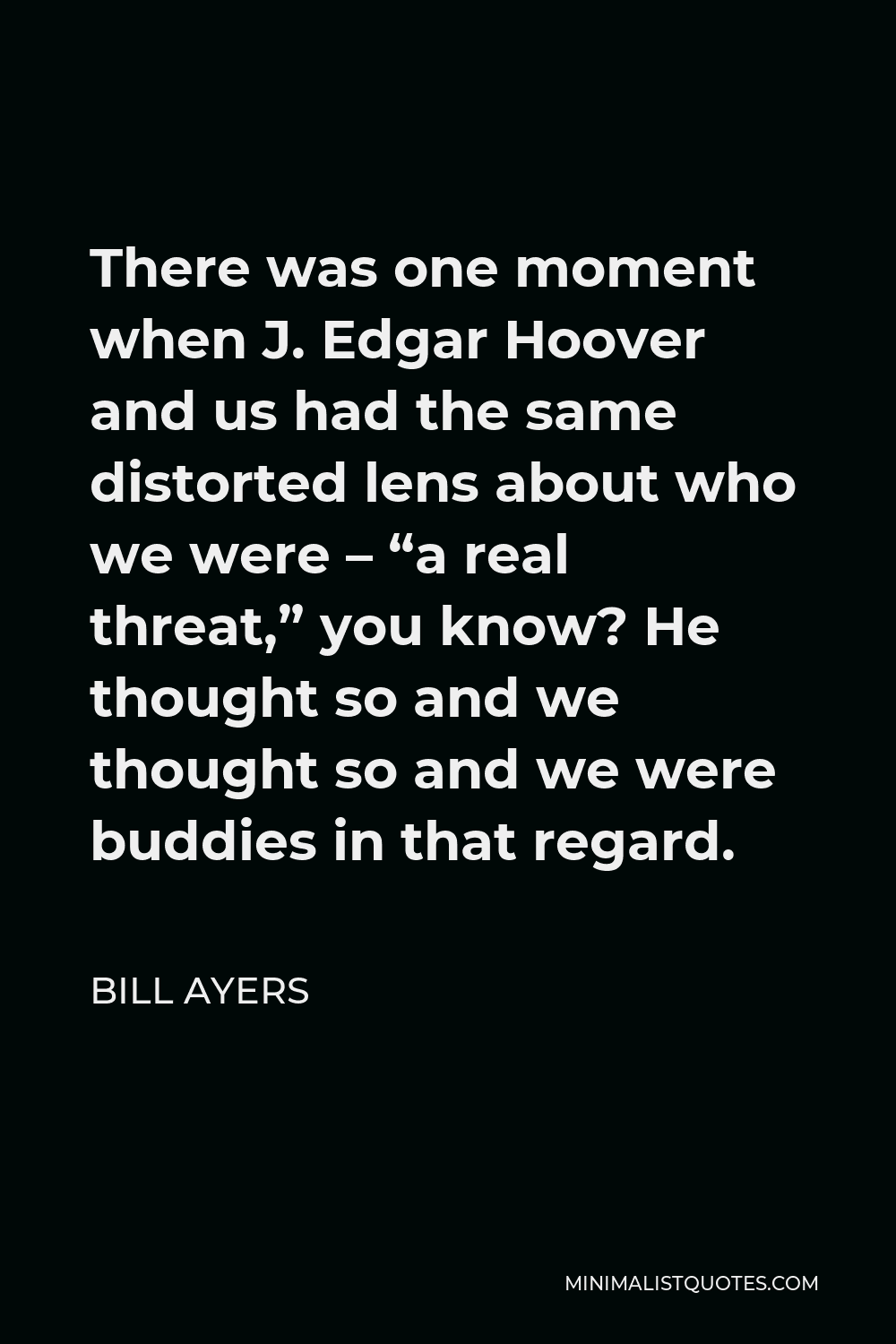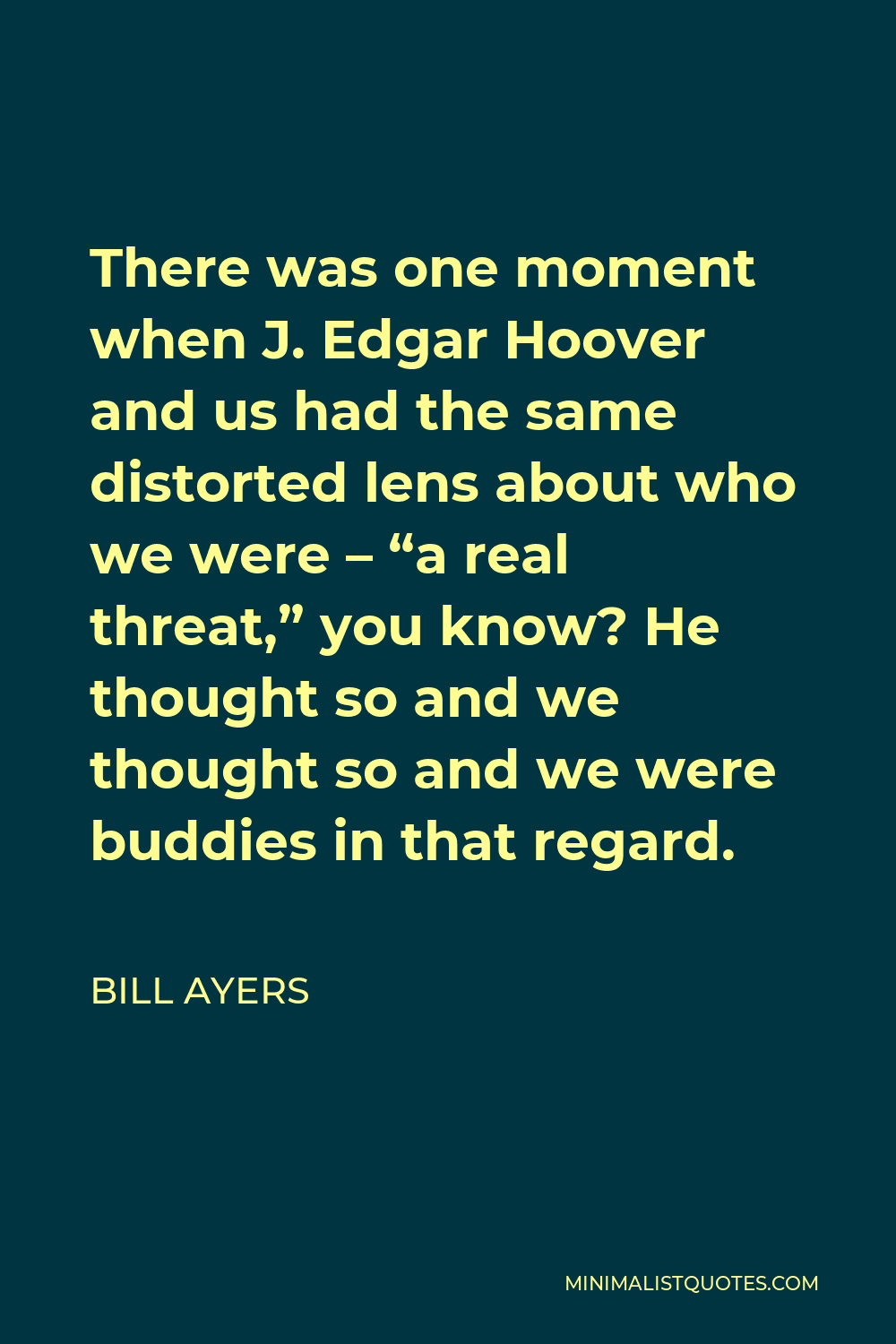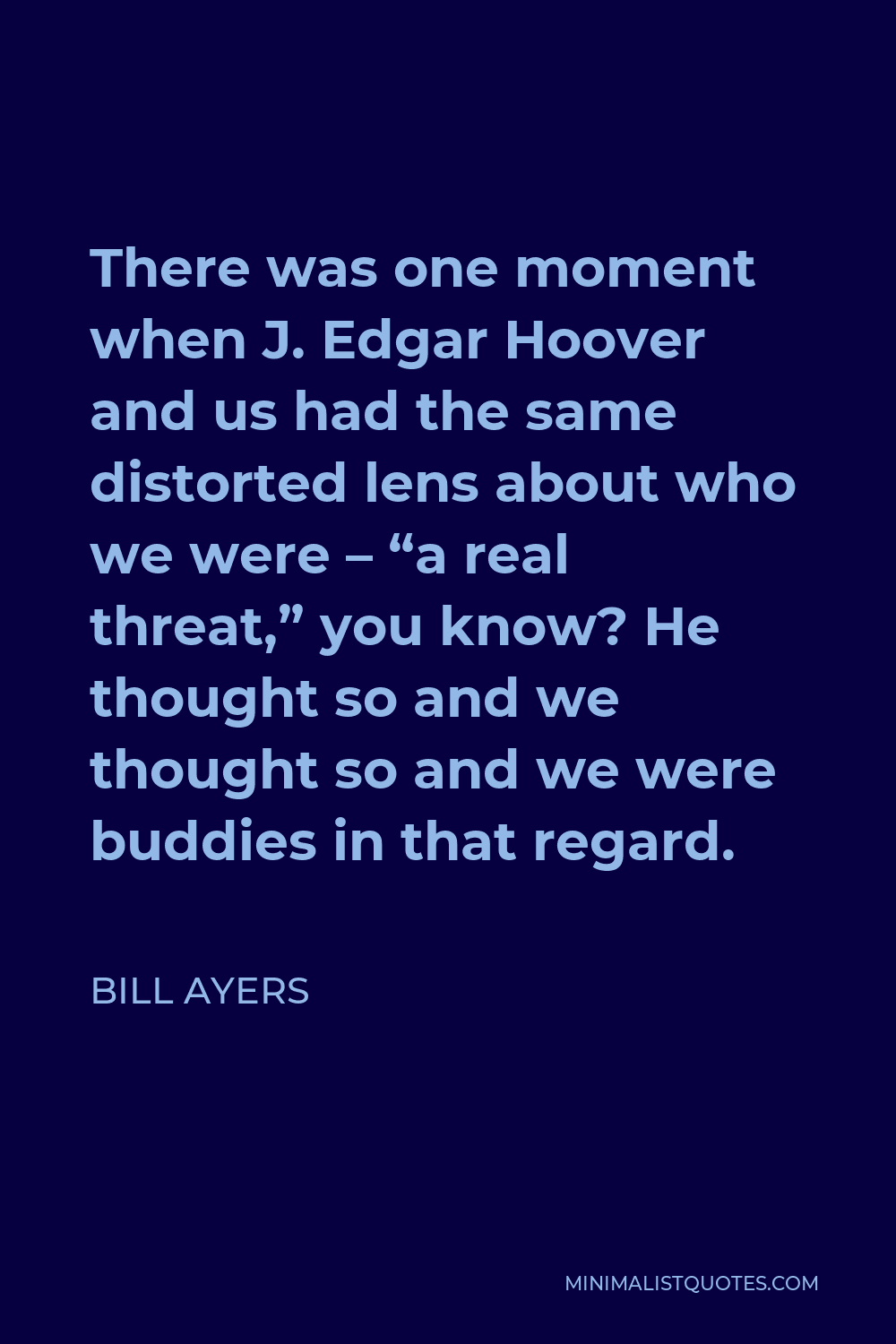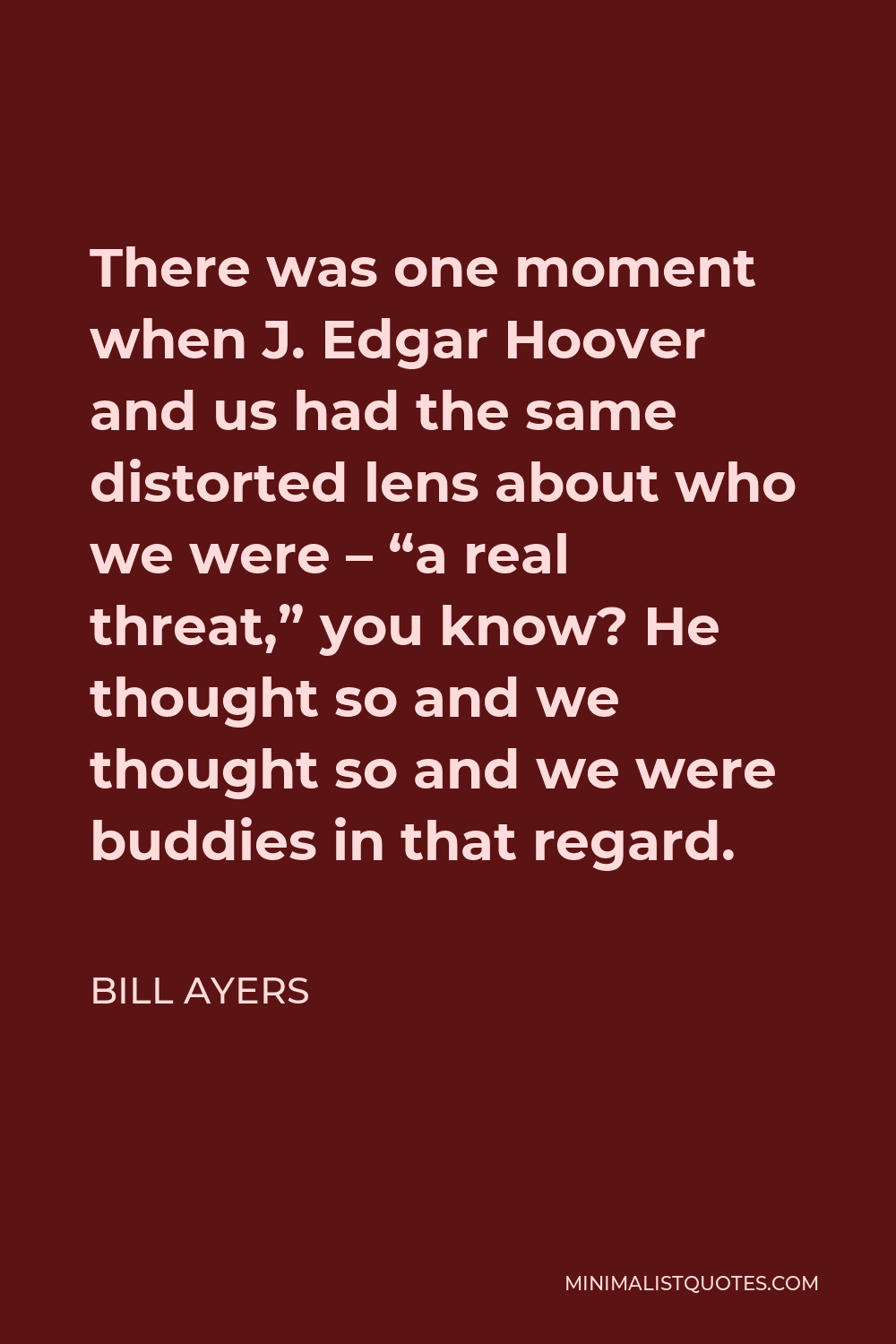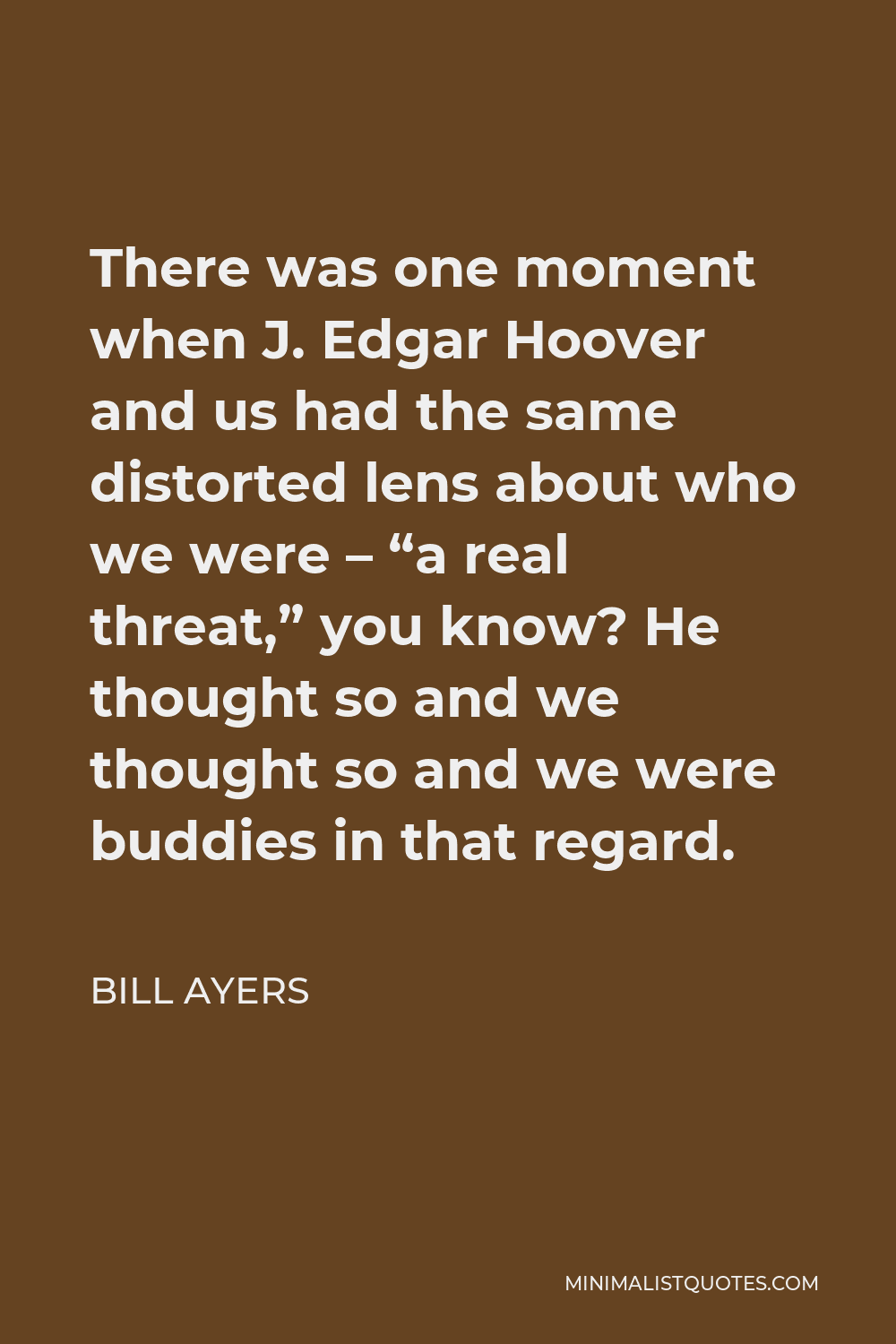In some ways a mark of good parenting is that you don’t try to make your children into little knockoffs of yourself. None of us went into business. None of us became powerful people like that.
BILL AYERSThere was one moment when J. Edgar Hoover and us had the same distorted lens about who we were – “a real threat,” you know? He thought so and we thought so and we were buddies in that regard.
More Bill Ayers Quotes
-





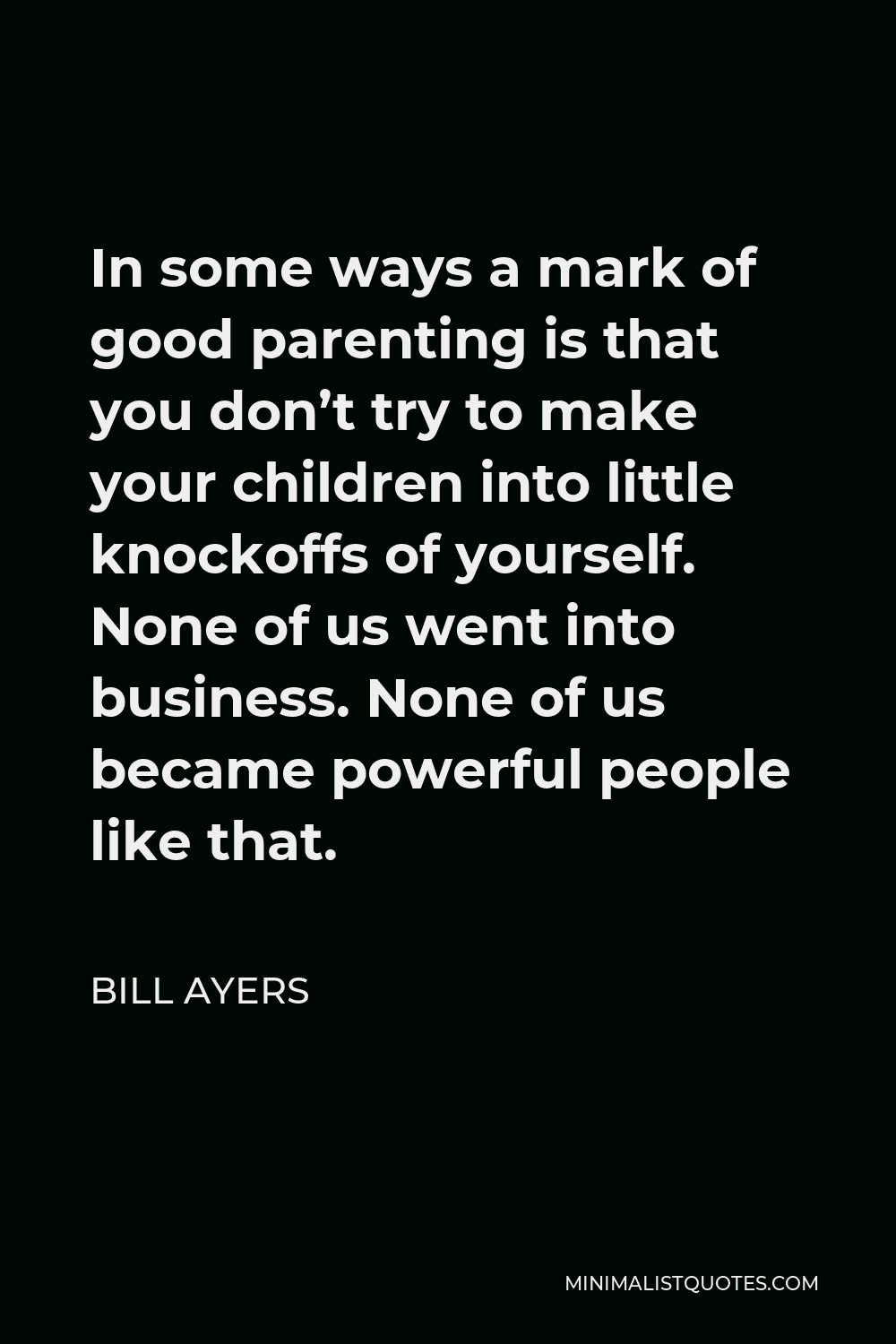
-





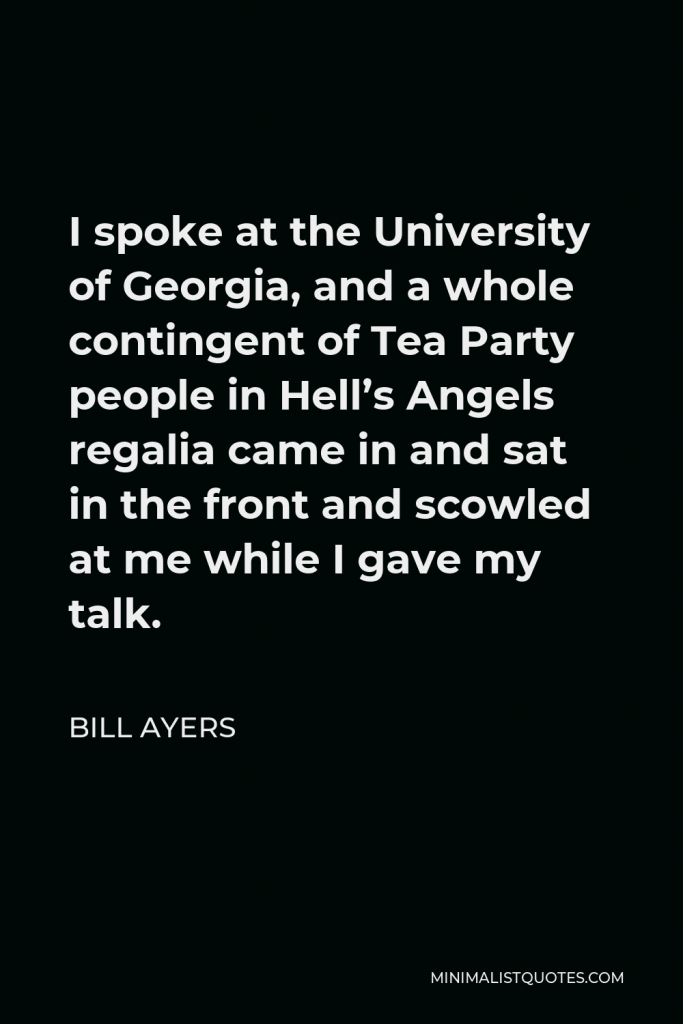

I spoke at the University of Georgia, and a whole contingent of Tea Party people in Hell’s Angels regalia came in and sat in the front and scowled at me while I gave my talk.
BILL AYERS -





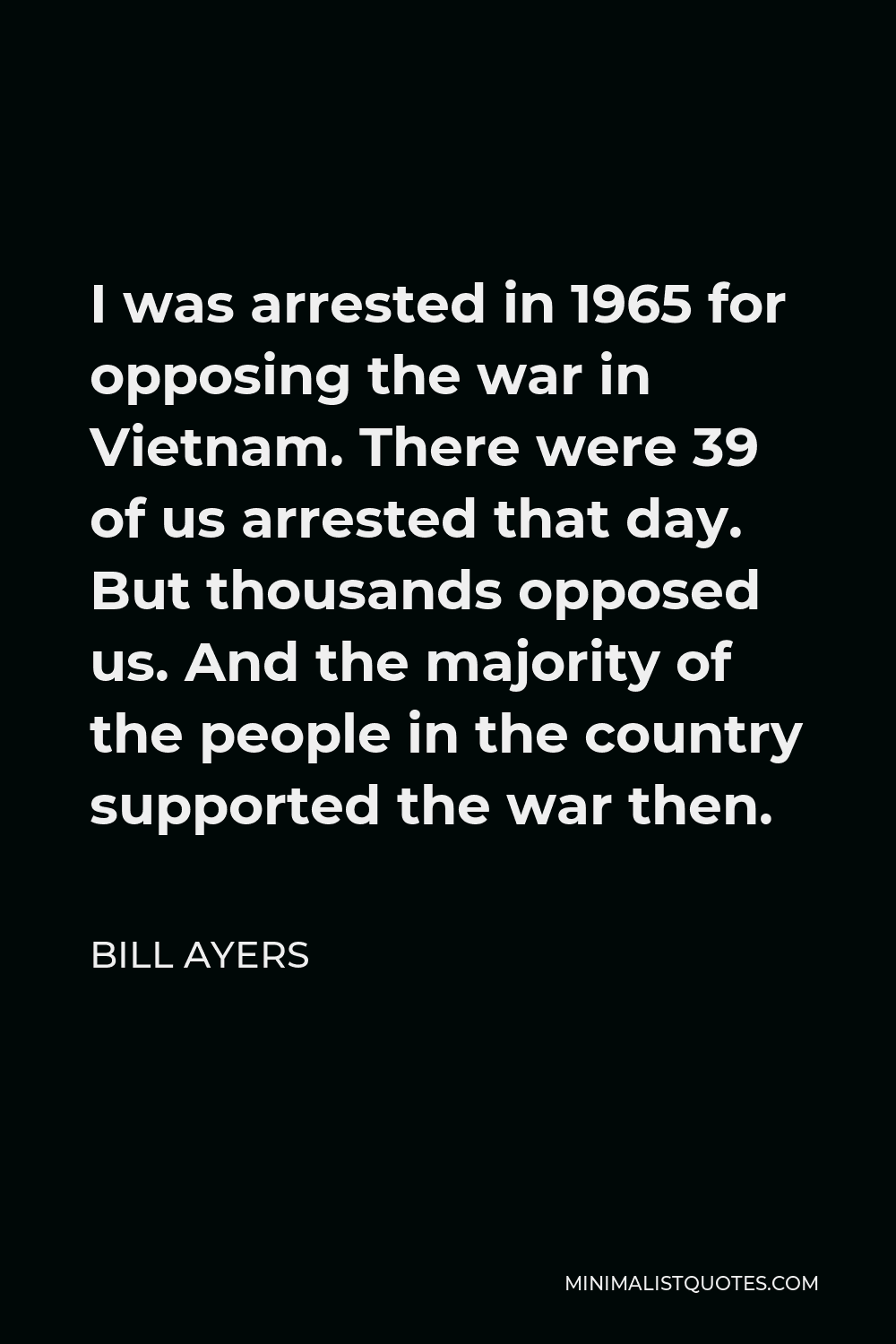
I was arrested in 1965 for opposing the war in Vietnam. There were 39 of us arrested that day. But thousands opposed us. And the majority of the people in the country supported the war then.
BILL AYERS -





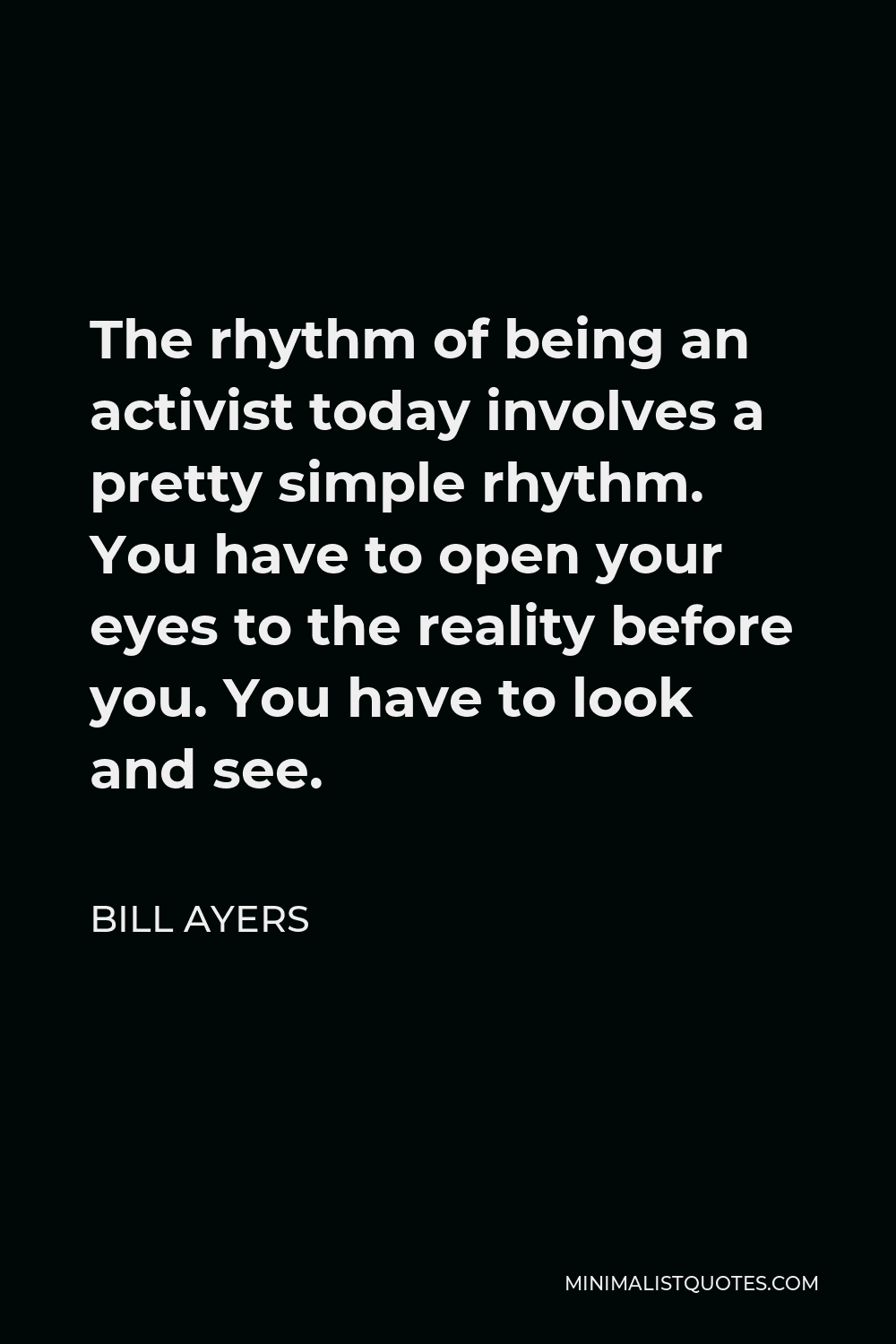
The rhythm of being an activist today involves a pretty simple rhythm. You have to open your eyes to the reality before you. You have to look and see.
BILL AYERS -





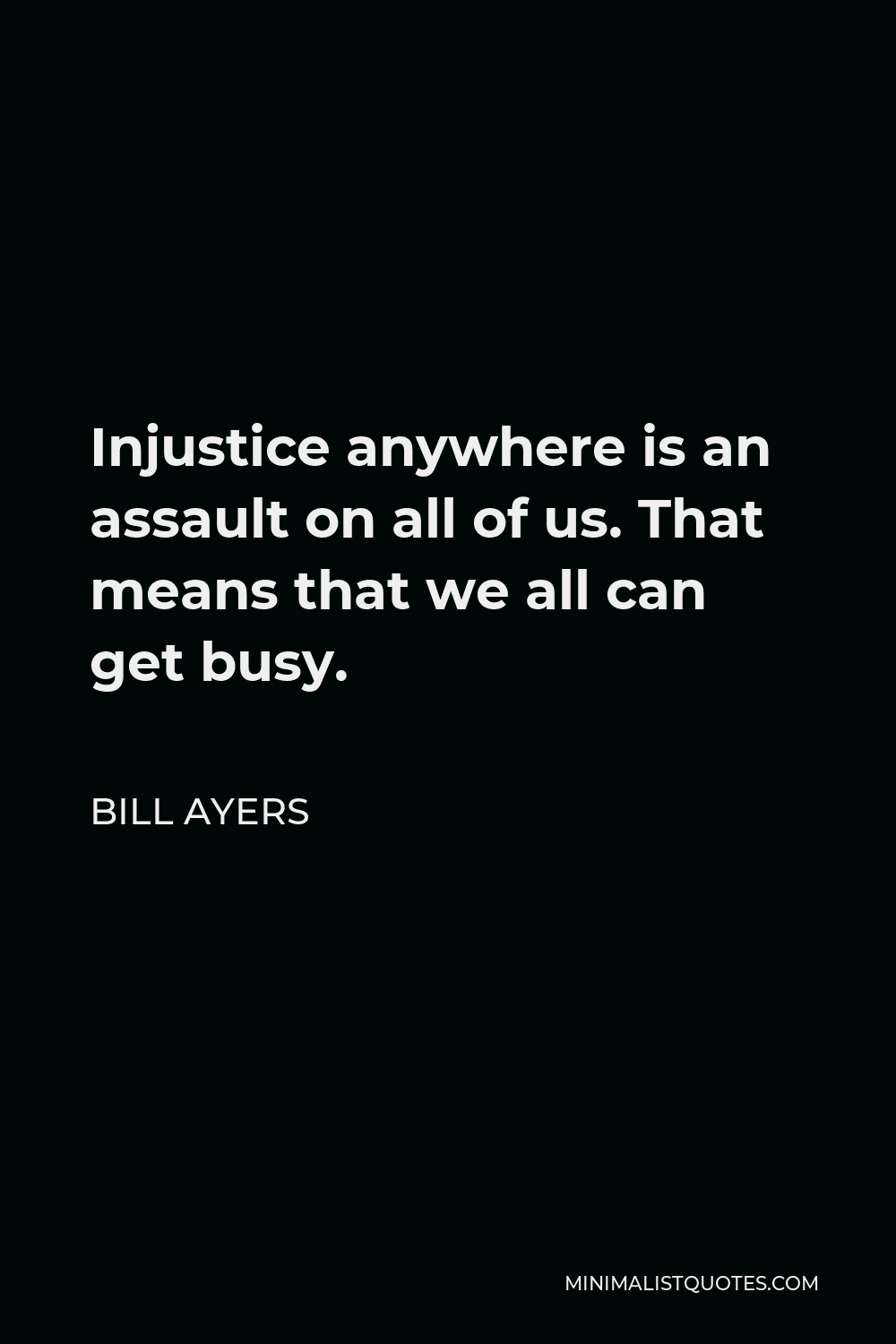
Injustice anywhere is an assault on all of us. That means that we all can get busy.
BILL AYERS -





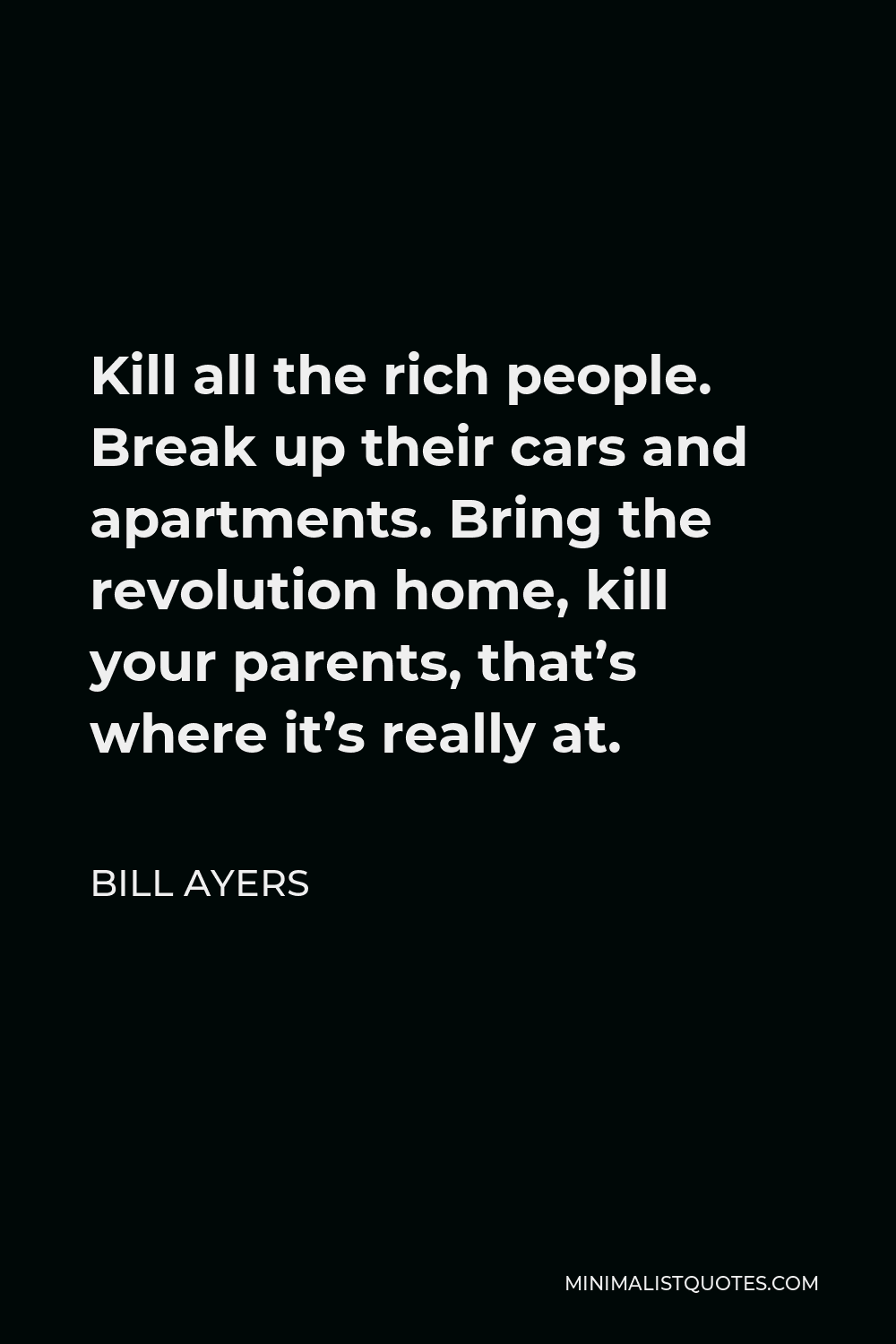
Kill all the rich people. Break up their cars and apartments. Bring the revolution home, kill your parents, that’s where it’s really at.
BILL AYERS -





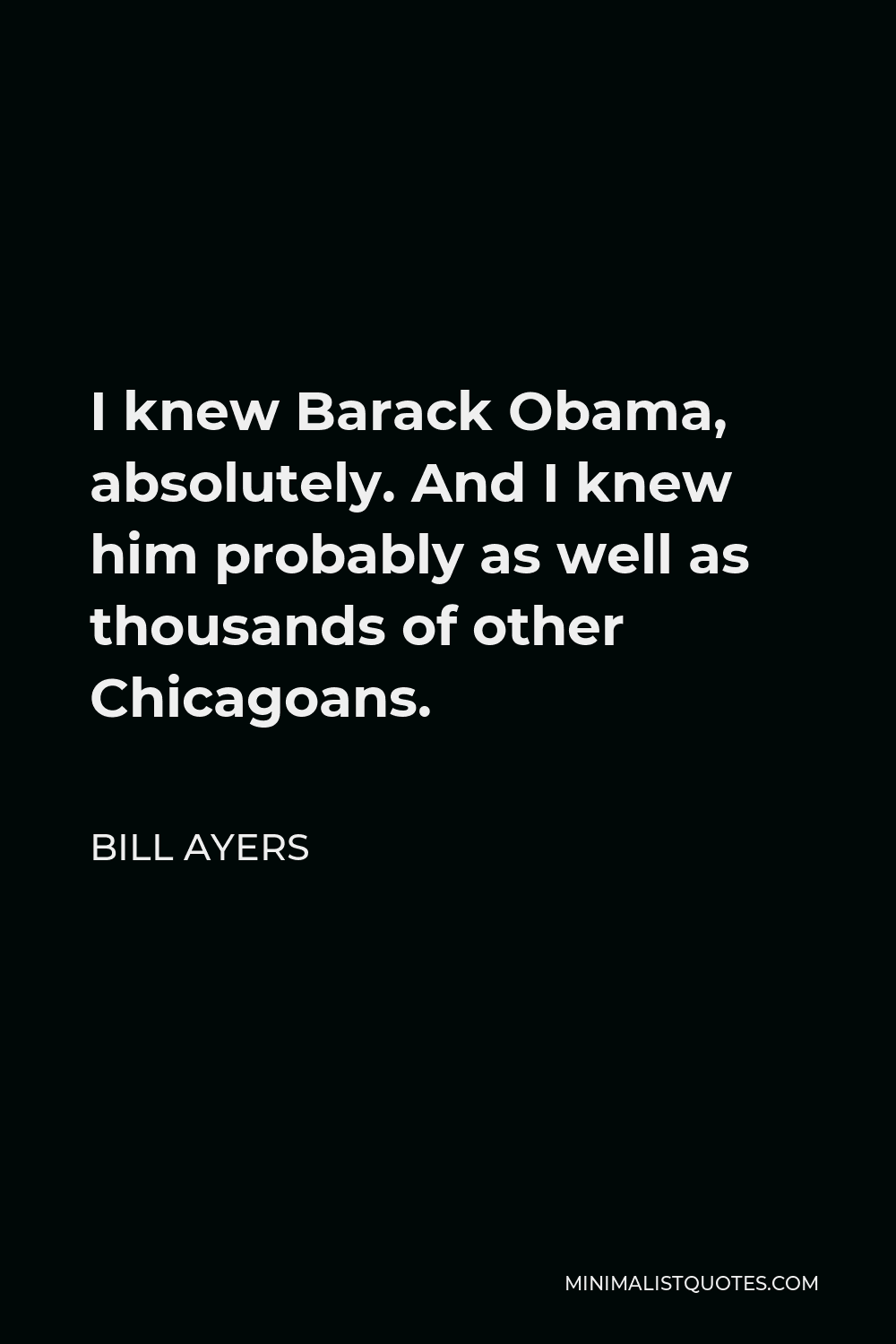
I knew Barack Obama, absolutely. And I knew him probably as well as thousands of other Chicagoans.
BILL AYERS -





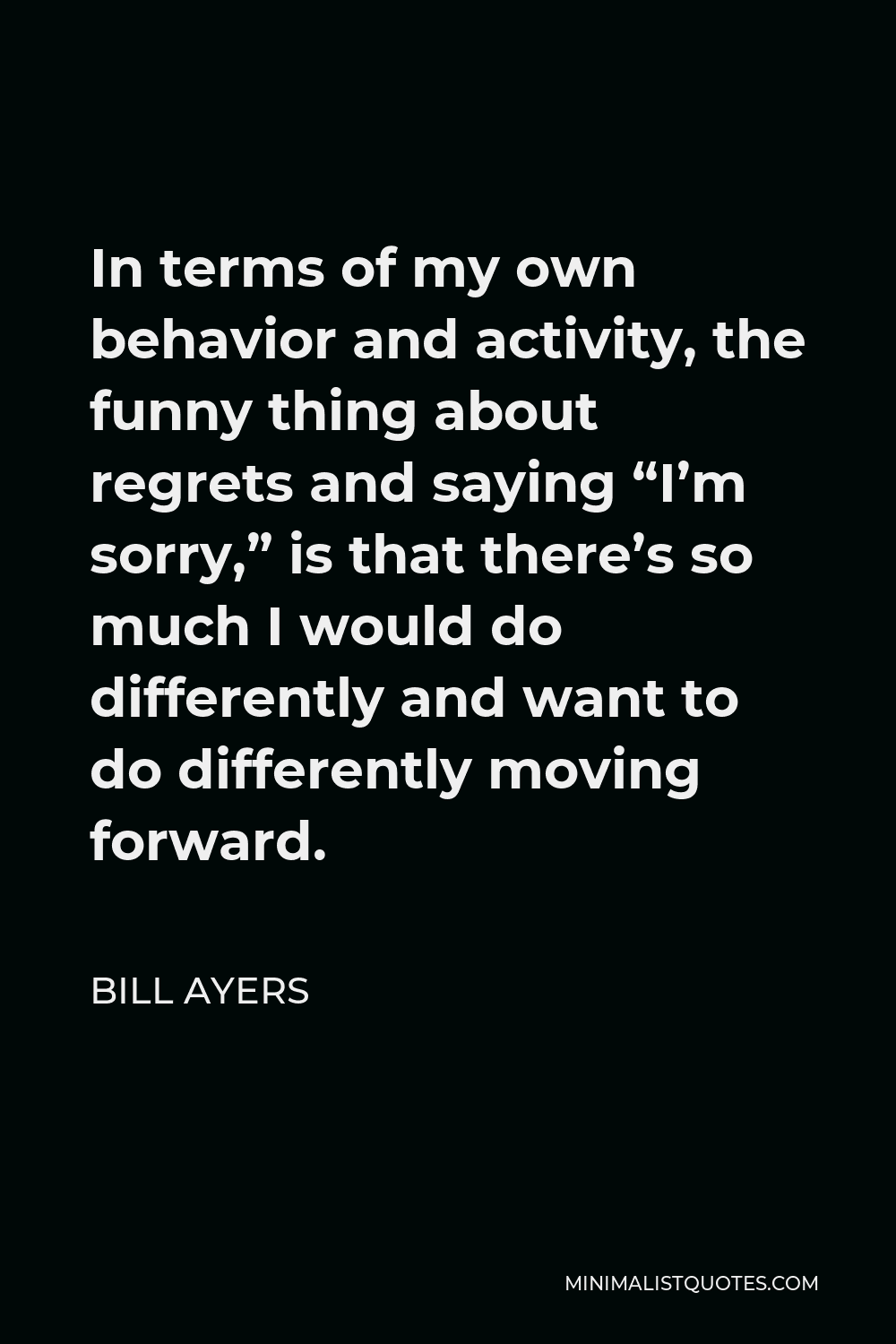
In terms of my own behavior and activity, the funny thing about regrets and saying “I’m sorry,” is that there’s so much I would do differently and want to do differently moving forward.
BILL AYERS -





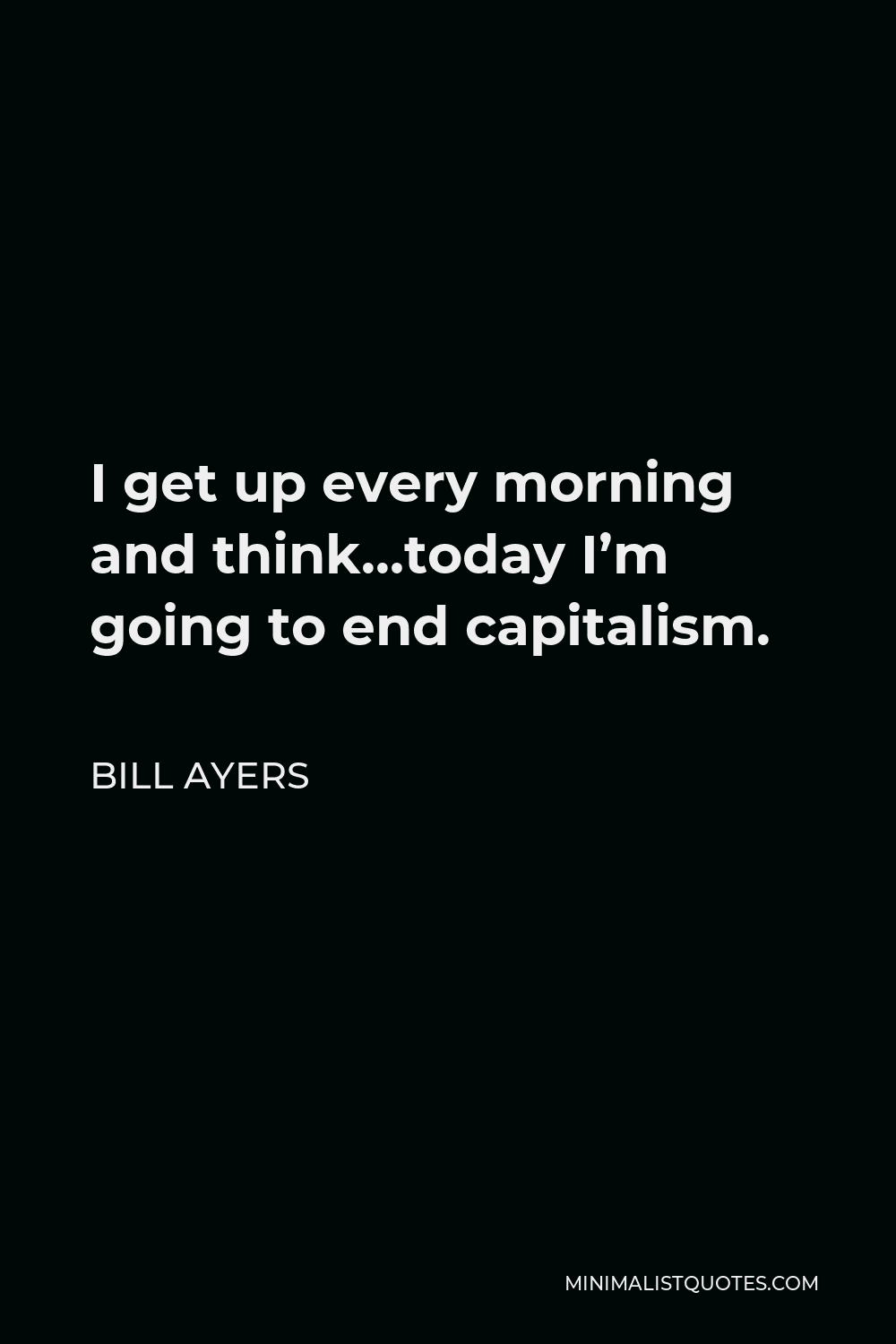
I get up every morning and think…today I’m going to end capitalism.
BILL AYERS -





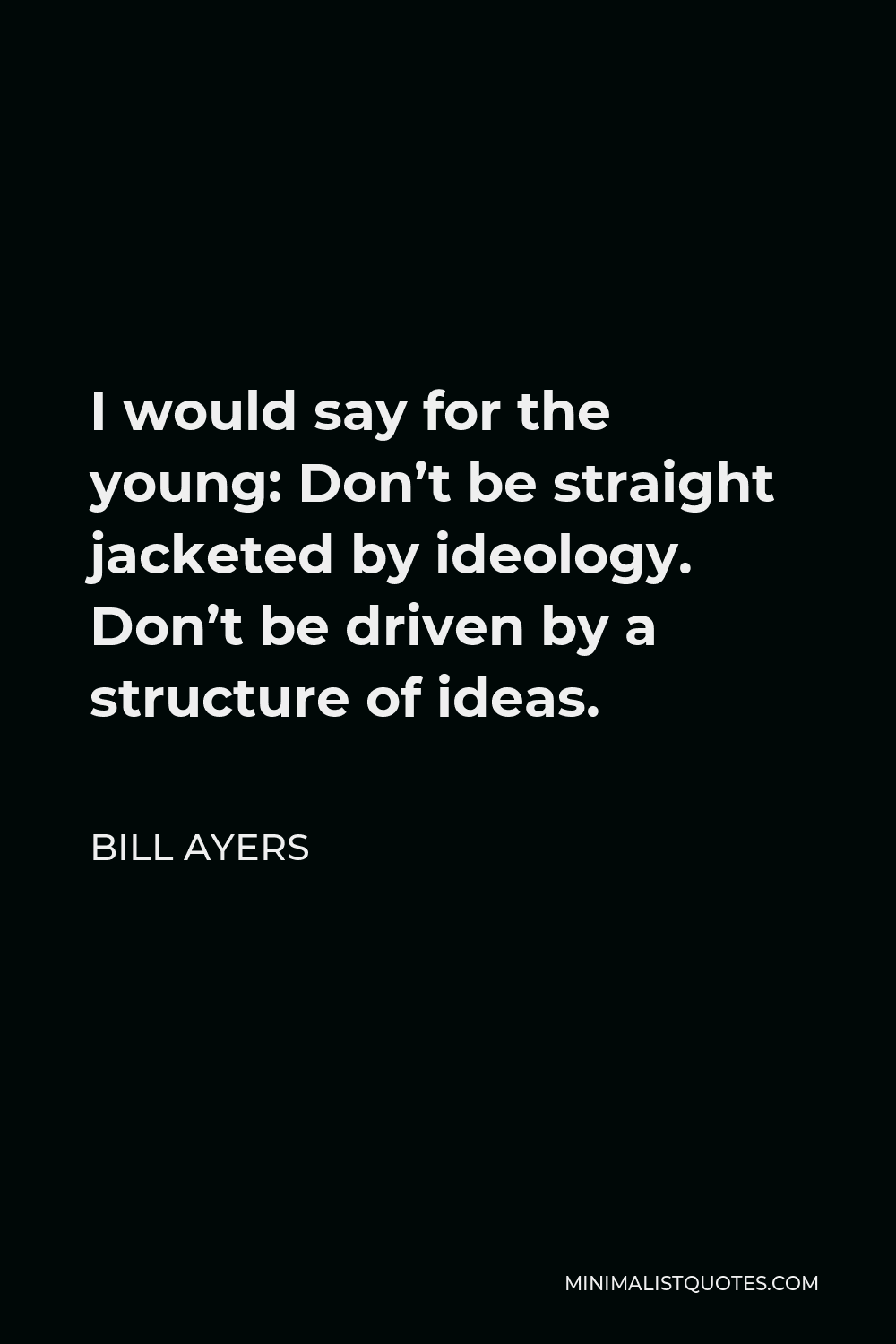
I would say for the young: Don’t be straight jacketed by ideology. Don’t be driven by a structure of ideas.
BILL AYERS -





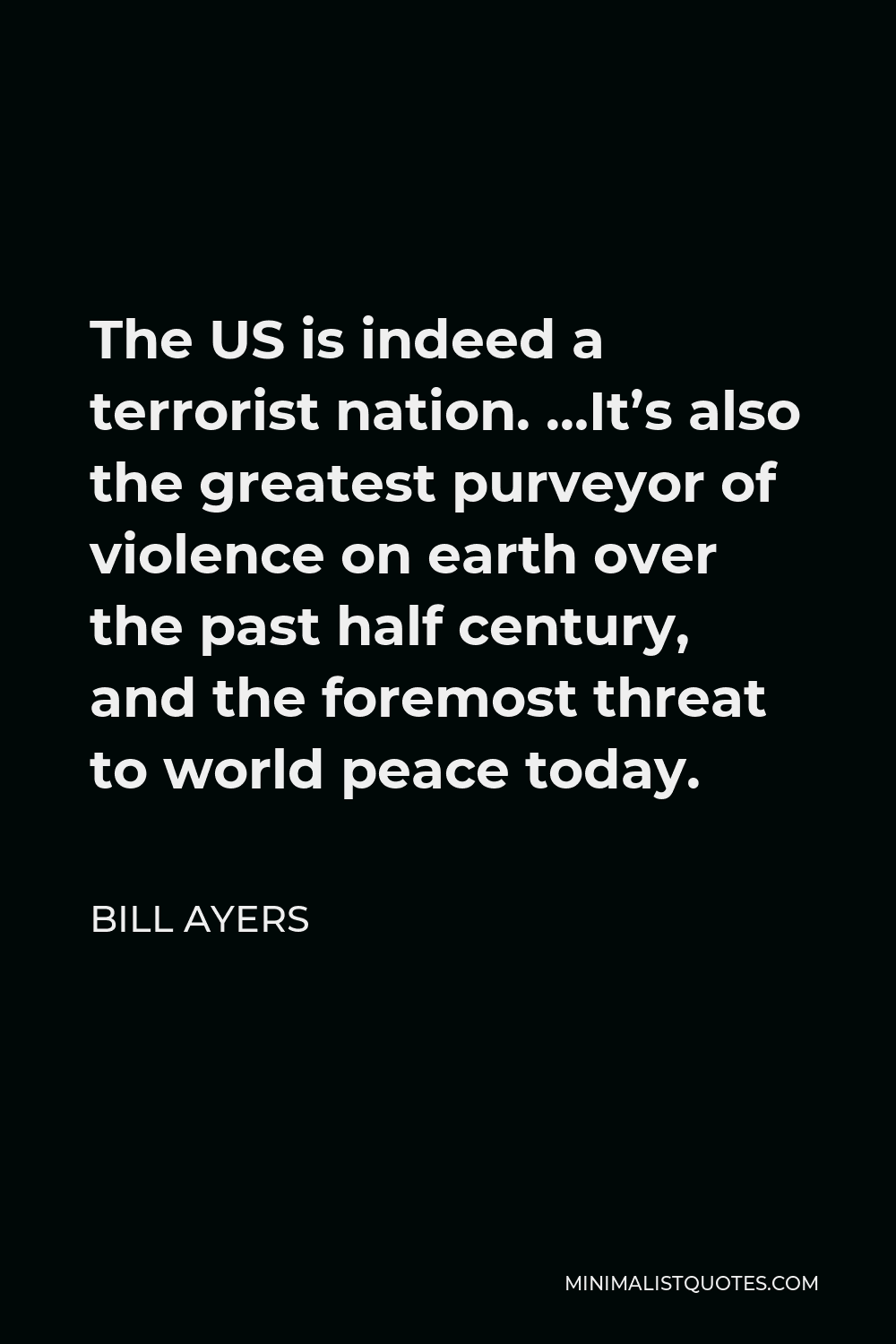
The US is indeed a terrorist nation. …It’s also the greatest purveyor of violence on earth over the past half century, and the foremost threat to world peace today.
BILL AYERS -





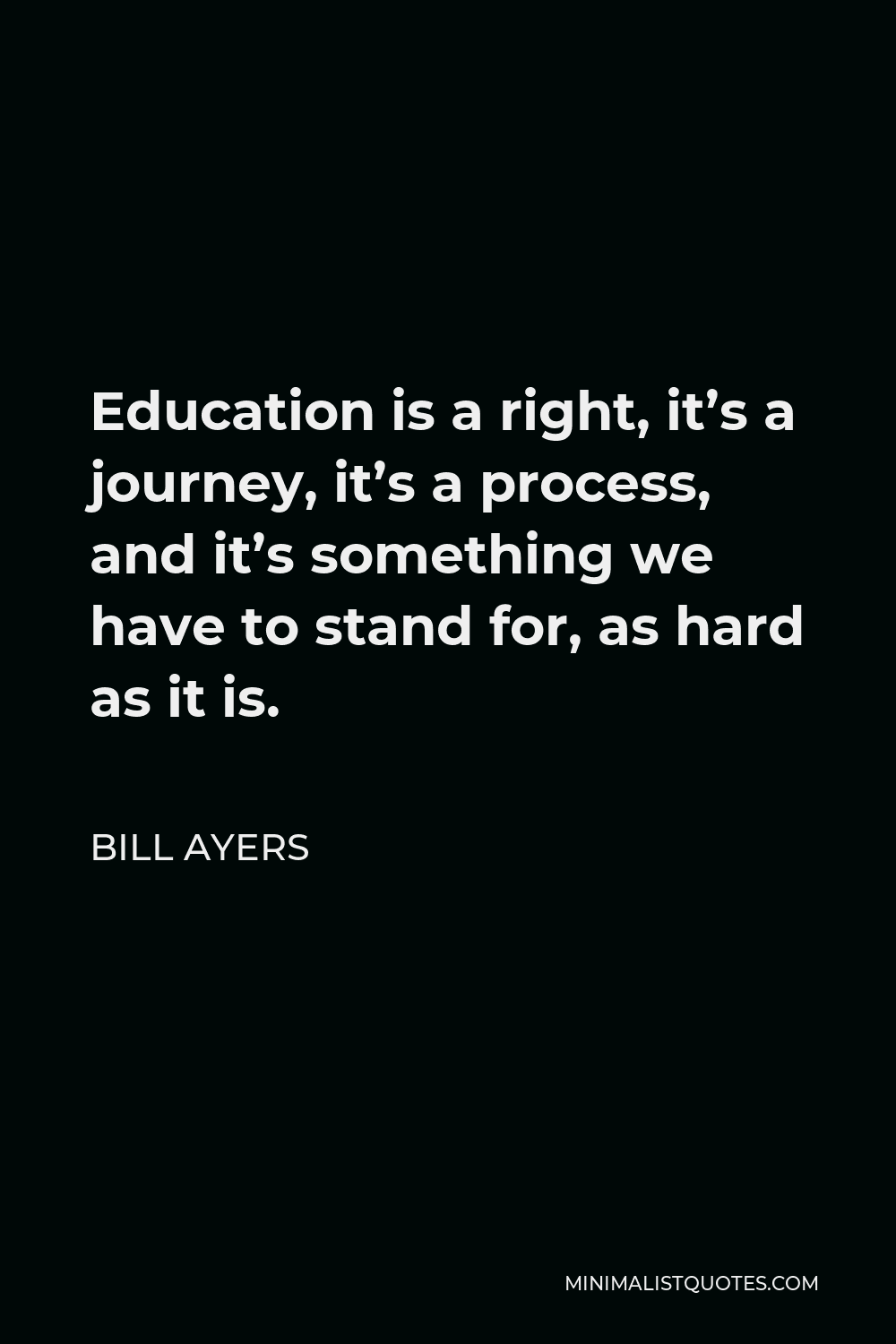
Education is a right, it’s a journey, it’s a process, and it’s something we have to stand for, as hard as it is.
BILL AYERS -






Everything was absolutely ideal on the day I bombed the Pentagon.
BILL AYERS -





![Bill Ayers Quote - [John] McCain seemed to be winking to the Right, and [Barack] Obama seemed to be winking to the Left. Neither one of them – if McCain had been elected we’d still be where we are on gay rights.](https://minimalistquotes.com/images/john-mccain-seemed-to-be-winking-to-the-right-and-.jpg)
[John] McCain seemed to be winking to the Right, and [Barack] Obama seemed to be winking to the Left. Neither one of them – if McCain had been elected we’d still be where we are on gay rights.
BILL AYERS -





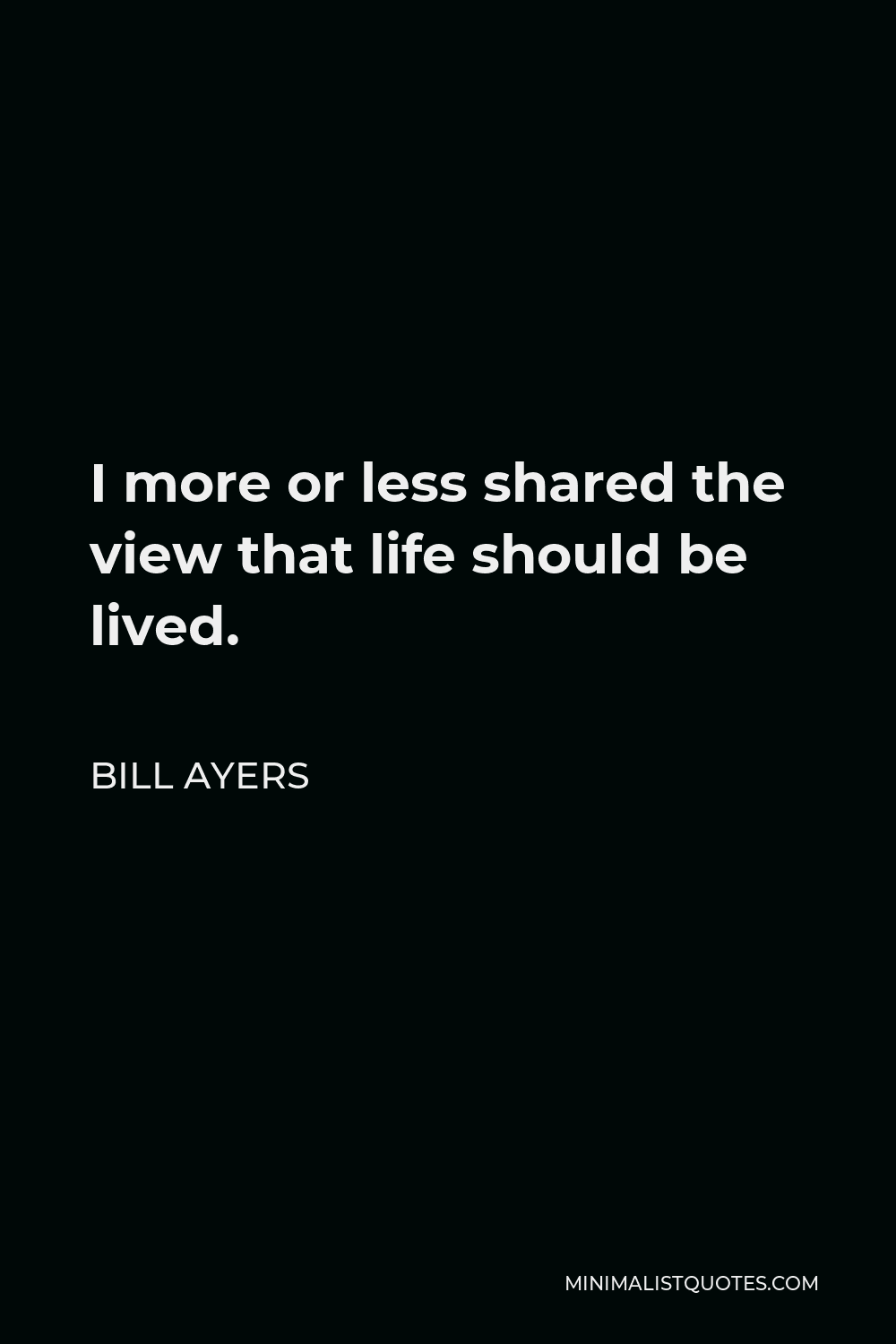
I more or less shared the view that life should be lived.
BILL AYERS -





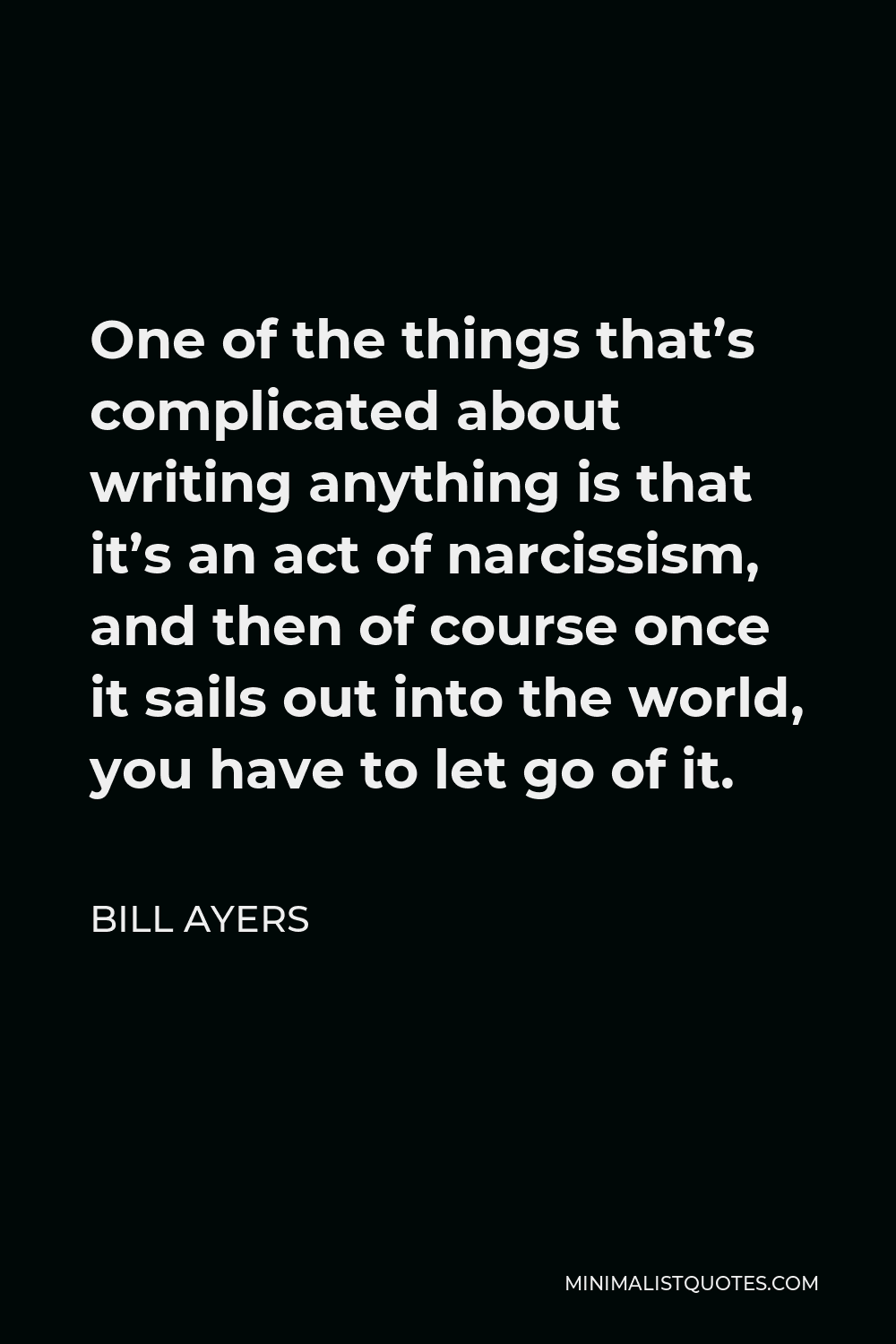
One of the things that’s complicated about writing anything is that it’s an act of narcissism, and then of course once it sails out into the world, you have to let go of it.
BILL AYERS
